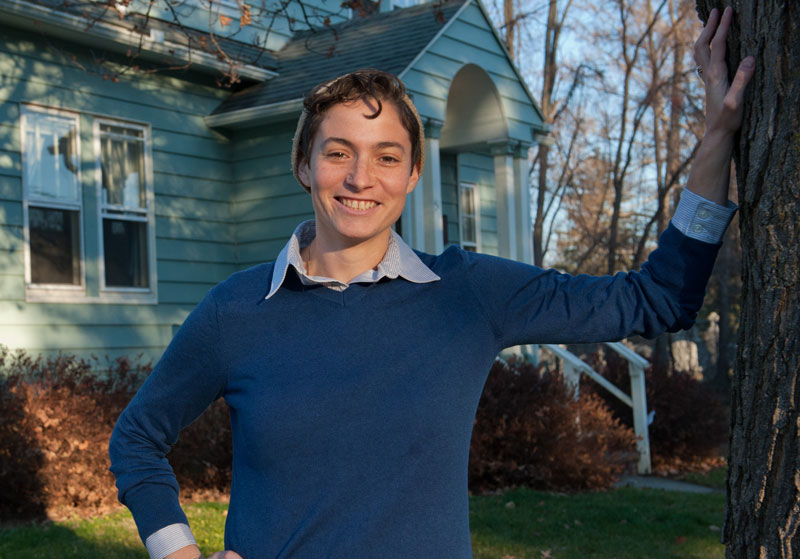Rabbi Kerry Chaplin: Finding Her "Place"

After earning her BA in religious studies (with a minor in Hebrew) and an MA in nonprofit management from Washington University in St. Louis, Kerry Chaplin decided to apply to rabbinical school. She went on to receive an MA in rabbinic studies and rabbinic ordination from the Ziegler School of Rabbinic Studies in Los Angeles, but working toward those goals, she faced a few challenges.
“I had tried to go to rabbinical school right out of college, “ she explains, “but the Conservative Movement wasn’t accepting openly lesbian and gay students. I had written my applications and turned in my reference letters. But I had a conversation with someone who had written one of my letters of recommendation—I wasn’t out to him—and he said ‘Just make sure you’re going into this for the right reasons.’ What he intended to say was different from the impact. What I heard was, ‘This is a career grounded in ethics, so make sure your ethics are in the right place before you begin this work.’ I couldn’t see how returning to the closet could lead to ethical living, so I withdrew my application.”
Finding the right community made all the difference. During her time as interfaith organizer and later interfaith organizing director at California Faith for Equality—an that organization works with faith communities to promote LGBT equality—Chaplin observed the work of the clergy, which she came to greatly admire. “I felt an alignment with the opportunity to build intimacy with people in their most vulnerable moments,” she says. “I wanted to do what they were doing.”
She recalls the moment when she knew there was a “place” for her in traditional Judaism. During a rare visit to synagogue on a Shabbat morning, Chaplin entered the service just as the rabbi announced to the entire community that the California Supreme Court had decided in favor of marriage equality. She says, “Everyone stood up and was clapping. I’d never seen anything like that in a Jewish setting before. I guess I hadn’t been dreaming big enough. I saw that there was a space for me in institutional Judaism.”
